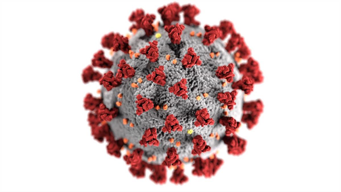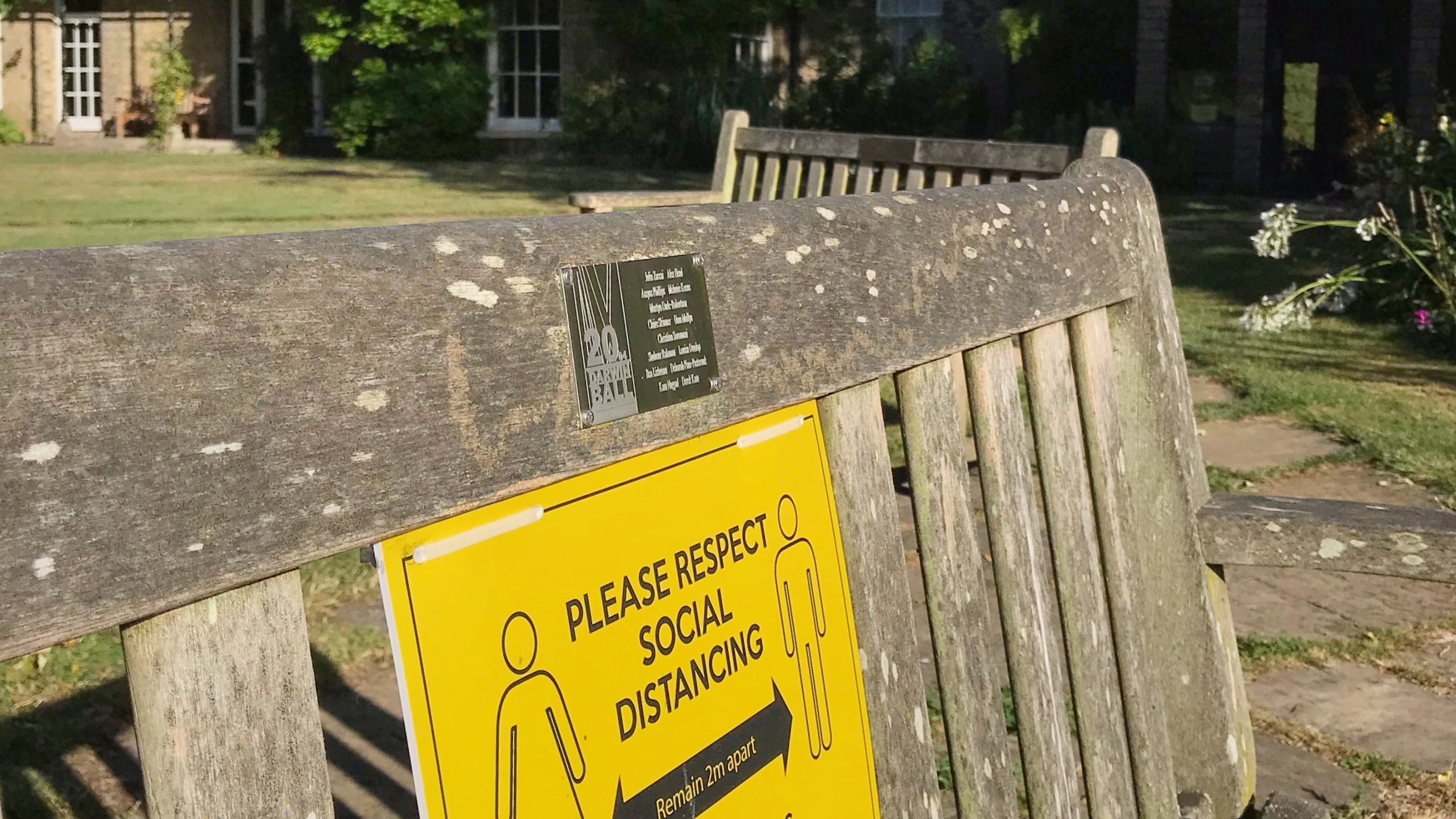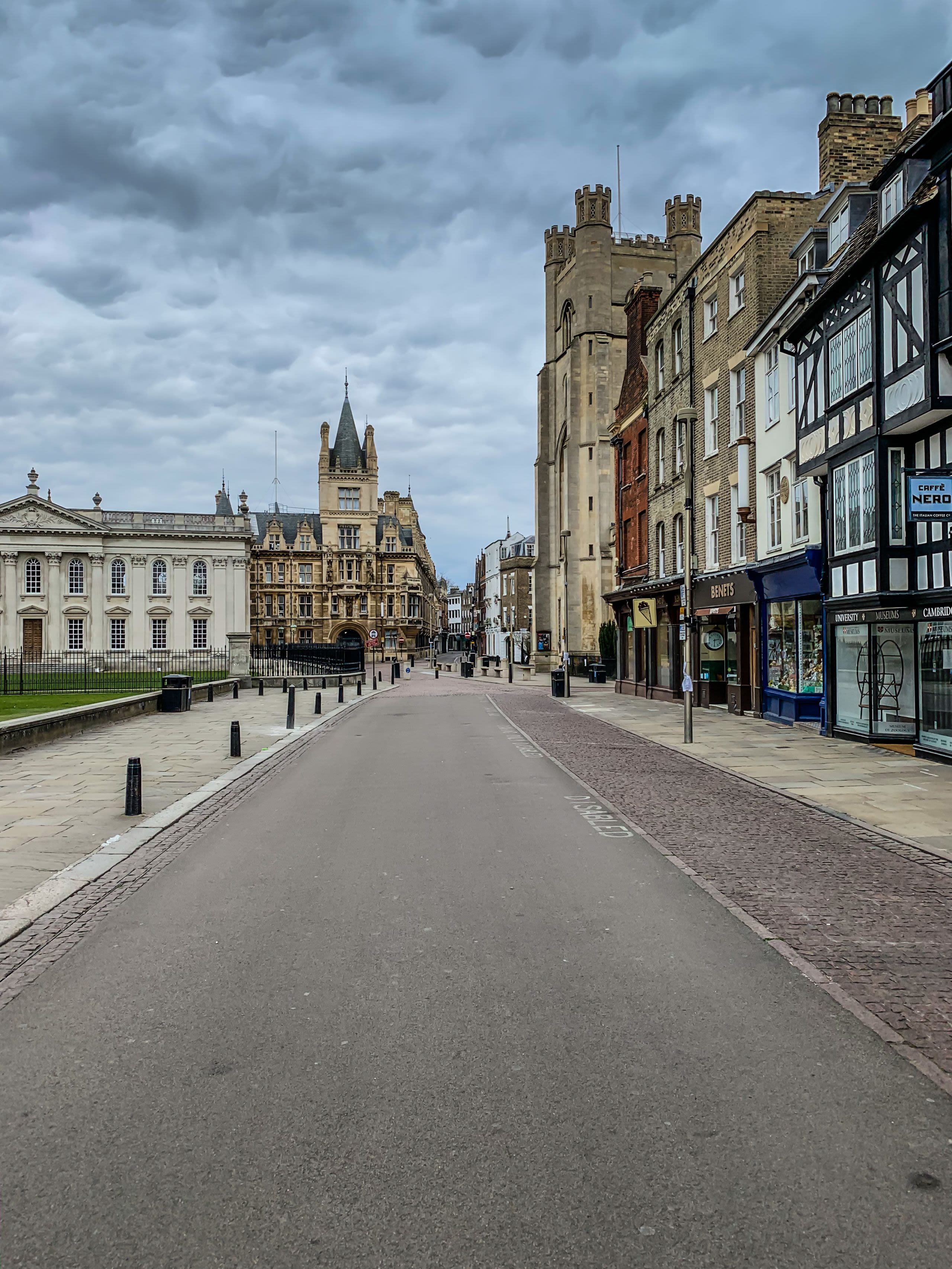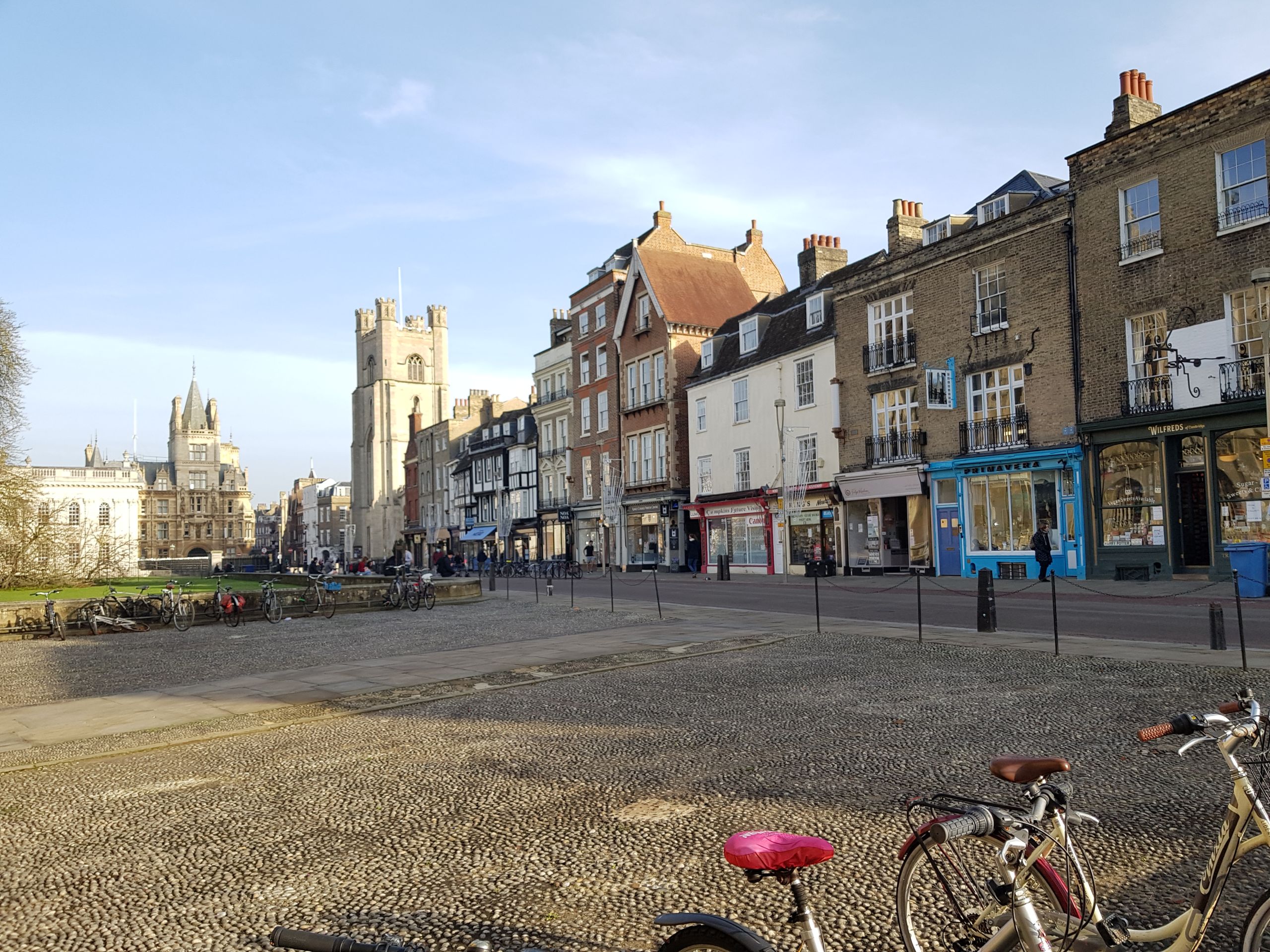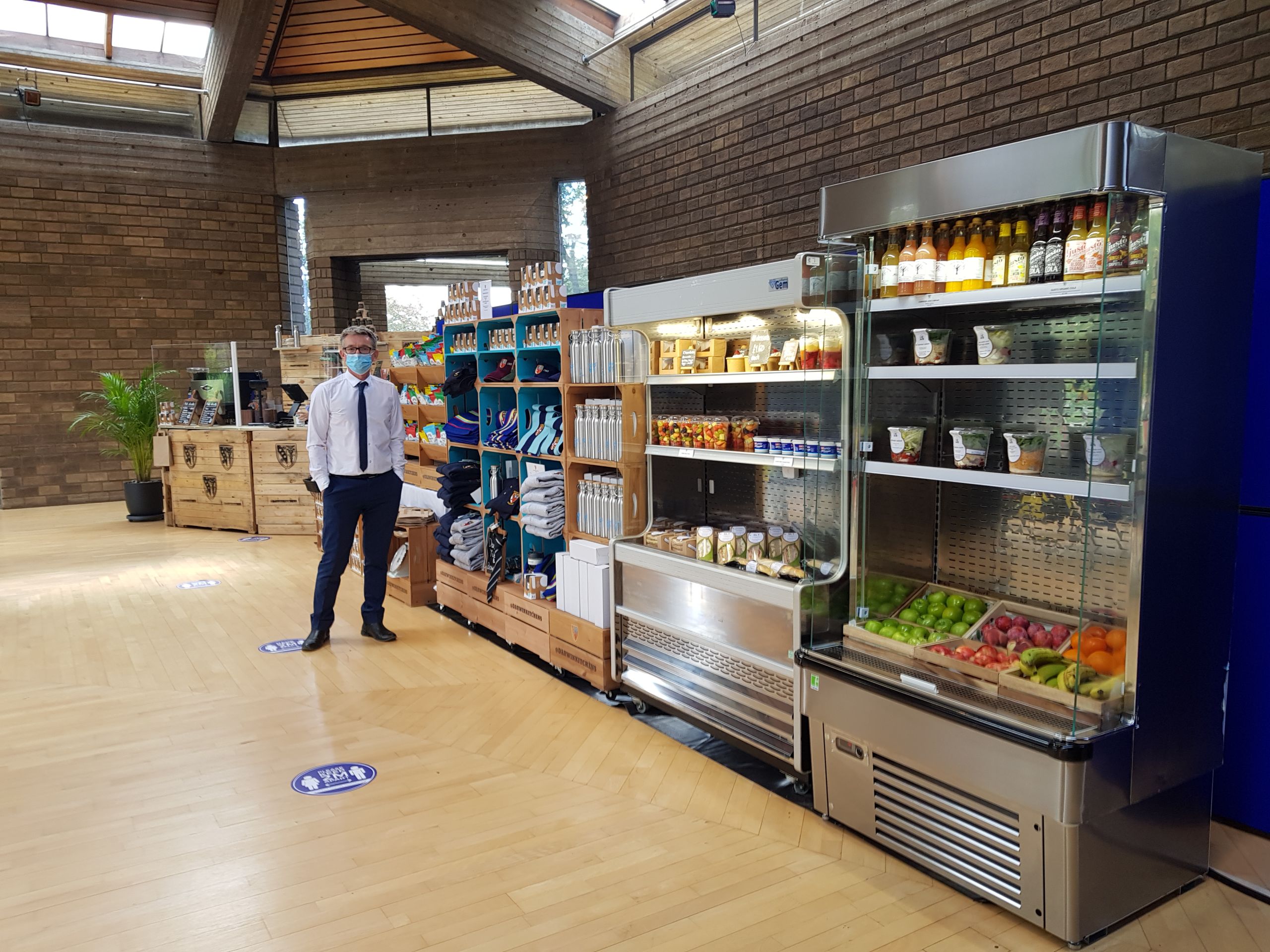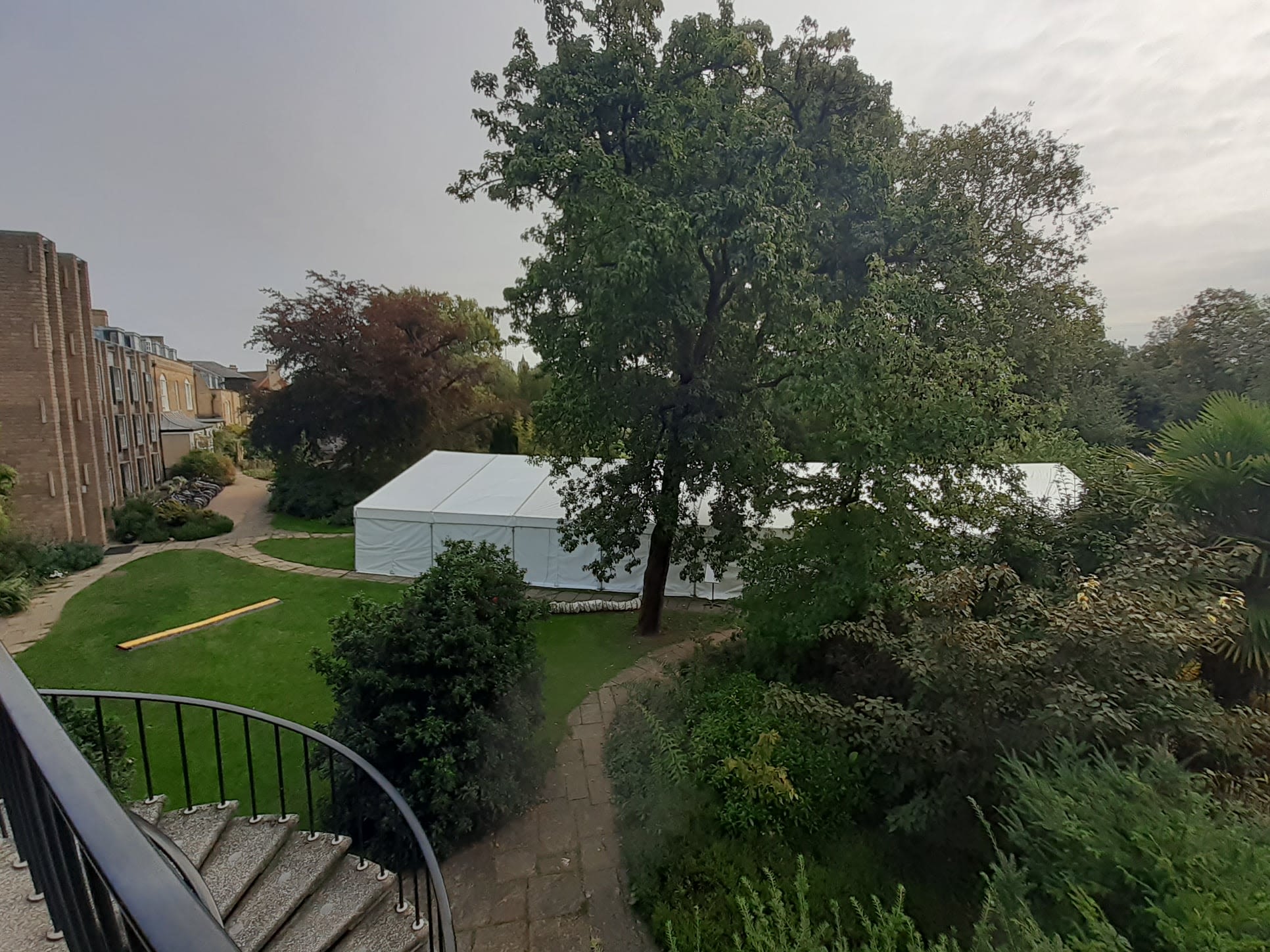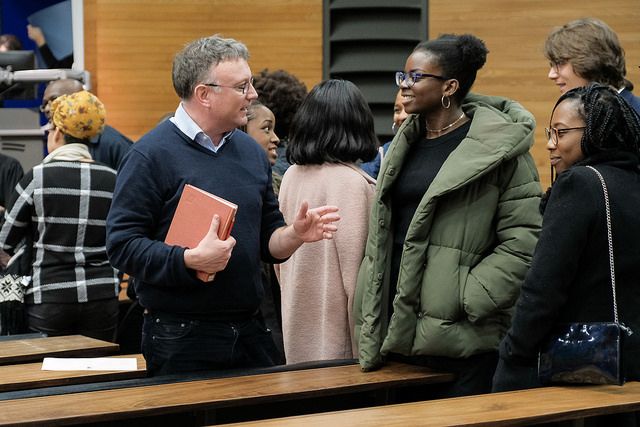Locked down in Darwin
Duncan Needham, Dean of Darwin, reflects on Lockdown in Darwin College

Like everyone else we first became aware of a new and deadly virus emanating from China in January. But COVID-19 became immediate for me as Dean and Senior Tutor of Darwin College when I arrived at work on 10 February. The Head Porter informed me that medics in hazardous material suits had been in overnight, attending to a student who had reported flu-like symptoms after returning from celebrating Lunar New Year in the Far East. Luckily, they later tested negative, however the news spread quickly through college and very soon there was a line of students at my door asking for updates and extensions to coursework deadlines (although not always in that order). College members often assume Senior Tutors know more than they are letting on. I usually try to follow Mark Twain’s advice and allow this misapprehension to persist as long as possible by saying as little as possible. But this was an entirely new situation and one that required swift action.
Shortly afterwards Darwin formed a COVID-19 Action Team comprising of the Bursar, the Head of Domestic Operations, myself and the person who really does know what is going on in any College – the Head Porter. Our immediate concern was for the vulnerable members of our community – staff, fellows and students with underlying health conditions. Some staff went home and vulnerable students were offered selfcontained accommodation. As it became increasingly likely that the University would close down, we encouraged students to return home if it was safe for them to do so. Unlike some colleges, however, we did not insist that our students leave (an impossibility for many postgraduates for whom Darwin is their home) and about half of those in College accommodation stayed throughout the lockdown. While the College was closed to all except resident members and key workers from 23rd March, we maintained a limited take-away catering service and opened a shop with basics for those still here.
“The news spread quickly through College and very soon there was a line of students at my door asking for updates and extensions to coursework deadlines...”
The month between the University closing and Easter weekend was intense. We had our first positive case on 18 March. With dozens of students isolating, either alone or as households, we deployed our network of Graduate Tutors and student supporters to provide food, medicines and moral support. The University also launched a data gathering exercise to identify who was still here (many of our postgraduate students live in private accommodation), who was planning to leave and when, and who was most vulnerable. We shall never know exactly how many cases we have had as community testing stopped in mid-March. But a number of our students were very sick indeed and looking after them remotely was challenging.
The counterpoint was that for several weeks, the historic centre of Cambridge was deserted. While slightly eerie, it was wonderful to have the place almost to oneself during the daily permitted perambulations. I noticed things that had passed unnoticed in my twelve years here: the statue of Thomas Gresham on Trinity Street; the peregrines nesting by the old Cambridge University Press building; that the beer festival was on when Google mapped the city. As the weather improved in April and the lockdown eased, officially or otherwise, the city centre became noticeably more ‘town’ than ‘gown’. May Week passed without the riotous celebrations that normally mark the end of Easter Term. Also missing were the tourists. Normally in summer, an invading army marches daily across the Backs to take up position on King’s Parade. Absent of tourists, a colleague remarked how much she was reminded of the Cambridge of her childhood in the early 1960s.
At the time of writing we are nearly half way through Michaelmas Term. Many students had to spend two weeks in isolation after arriving from non-exempt countries and our DCSA Welfare Officers and student supporters did a brilliant job of making sure they were not truly isolated during that time. Despite concerns that the number of new arrivals would be significantly lower this year, postgraduate matriculations are up 2 per cent across the University with Darwin welcoming 4 per cent more new students compared to last year. Most of College is open again with safe social distancing restrictions: the Study Centre operates with a booking system and the Catering Manager has converted the Hall into an all-day café with screens between the tables. After serving as the location for arriving students to pick up their Welcome Packs and food boxes (if entering isolation), the Old Library is now a study space where online meetings can take place. Most importantly, DarBar has reopened, having decanted to a large marquee on the back lawn.
COVID-19 is of course still with us. The University launched its asymptomatic testing programme at the start of term with weekly sampling of students organized in household ‘pools’. The College Action Team continues to meet and plan for scenarios ranging from individual households entering isolation to a national lockdown. My own experience of the pandemic so far is that, while there are always a few individuals who will make a situation more difficult, our students have dealt with the emergency admirably. Notwithstanding the enormous personal challenges, I suspect the lack of distractions may have increased productivity for many; this is certainly the impression that comes from reading the supervision reports. What I can say for sure is that a critical moment in the well-being of the College came with the re-launching of the punts in July. You can shut down pretty much anything in a Cambridge college – the library, the catering, even the bar. But you take away the punts at your peril. As the weather takes a turn, however, the punts have now gone away again until the spring.
